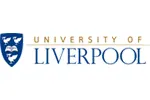

| The award | How you will study | Study duration | Course start | Domestic course fees | International course fees |
|---|---|---|---|---|---|
| MSc | Full-time | 1 year | September | GBP 6162 per year | GBP 15251 per year |
| MSc | Part-time | 3 years | September | find out | find out |
The MSc in Veterinary Science is a research-led programme delivered by the leading research groups in the School. It is based at the University's Leahurst Campus about 12 miles (19km) south of Liverpool in a rural area of the Wirral Peninsula.
The MSc is a pathway-based programme that allows students to choose a pathway that best meets their interests. IT can be taken full time or part time and is open to graduates in veterinary medicine, appropriate life sciences and also to intercalating veterinary undergraduates who have completed three years of study. It can also be incorporated into some clinical training programmes (see Veterinary Clinical Training). The programme offers excellent research training and preparation for careers in veterinary science, industry, government and conservation.
The aims of the Veterinary Science MSc programme are:-
Ìý
The MSc was developed through integrating several excellent and internationally well-regarded programmes in order to provide greater choice and flexibility to students, who choose from a menu of credit-bearing modules to create their own pathways. The main pathways are :-
However, other pathways are also available, tailored to the needs of individual students, especially those taking the MSc part-time or combining it with a clinical training programme. Each pathway comprises ‘core’ modules directly related to that pathway plus optional modules that allow the student to some diversity of subject matter. Students following are expected to undertake a research project and placement in an area related to their chosen pathway.
Veterinary ParasitologyThis pathway was developed from the long-running Veterinary Parasitology MSc programme. The pathway develops skills and knowledge relating to the biology, diagnosis and control of major veterinary parasites both within the UK and worldwide.
EpidemiologyThis pathway builds upon research strengths of the School of Veterinary Science in epidemiology and the mathematical modelling of infectious disease. Epidemiology is, in essence, the study of disease within populations, but incorporates knowledge of infection processes and dynamics at a wide variety of scales, from within-animal to the interactions of populations and the climate at a global scale.
Infection and Disease ControlThis pathway developed from the internationally-respected MSc in Veterinary Infection and Disease Control pathway (VIDC).Ìý It couples modules in microbiology / infectious disease with epidemiology to provide a ‘big picture’ perspective of infectious diseases and their control.
Infection and ImmunityThis pathway has been developed for students who wish to undertake detailed study of infection biology at the whole animal, cellular and molecular level rather than on control of infection in populations. The pathway focuses on how pathogens cause disease, the host response to infection and the methods by which these are studied.
Conservation ScienceThis path way has been developed from the highly successful Veterinary Conservation Medicine programme. The aim of the Veterinary Conservation Science pathway is to provide understanding and knowledge of the theory and application of ecological and veterinary (particularly disease) concepts of particular relevance to conservation and environmental management. The options within this pathway allow individuals to focus on aspects of population biology, by following modules in epidemiology, or in infection biology and control.
The programme is designed to allow a number of named pathways through the programme. These are:
All students will follow core modules totalling 100 credits, then follow optional and subject specific modules for the remaining 80 credits. Students, particularly part-time students in practice, government or industry may undertake 60 or 120 credits based on each pathway for the award of Postgraduate Certificate or Postgraduate Diploma respectively.
Below are some suggested courses at other providers that you may also be interested in:
Graduate Certificate in Safety, Risk and Reliability Engineering Graduate Certificate
Engineering Institute of Technology
Find out moreBachelor of Business Administration BBA
University of Applied Sciences Europe - Amsterdam
Find out moreIf you do not meet the entry requirements for this course then consider one of these postgraduate preparation courses from another institution:
Graduate Diploma of Engineering (Safety, Risk and Reliability)
Engineering Institute of Technology
Find out moreGraduate Diploma in Applied Science (Medical Physics)
Queensland University of Technology (QUT)
Find out moreThere are 424 other courses listed from University of Liverpool. A selection of these are displayed below:
Advanced Chemical Sciences (Nanoscale with Interfacial Science) MRes, MSc
University of Liverpool
Find out moreAdvanced Chemical Sciences (Nanoscale with Materials Chemistry) MRes, MSc
University of Liverpool
Find out moreAdvanced Chemical Sciences (Organic and Biomolecular Chemistry) MRes, MSc
University of Liverpool
Find out moreAdvanced Chemical Sciences (Organic Chemistry with Catalysis) MRes, MSc
University of Liverpool
Find out moreFind out more about studying in the United Kingdom